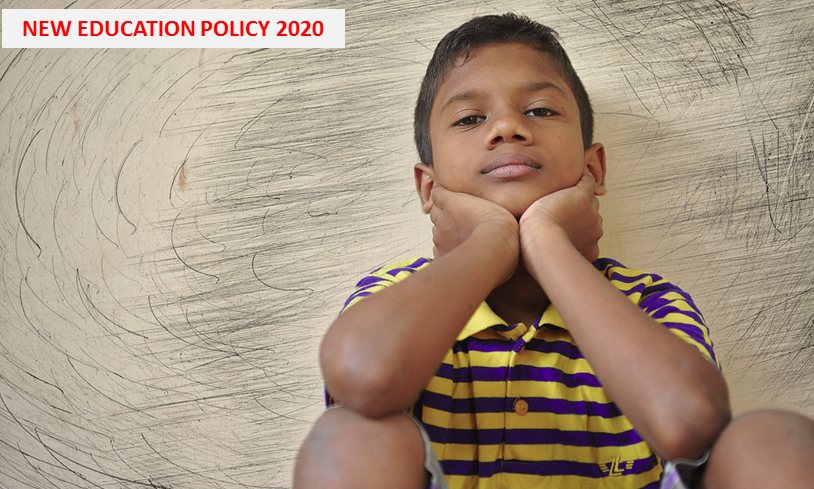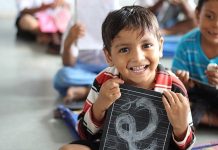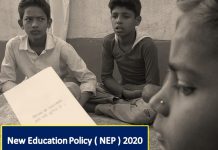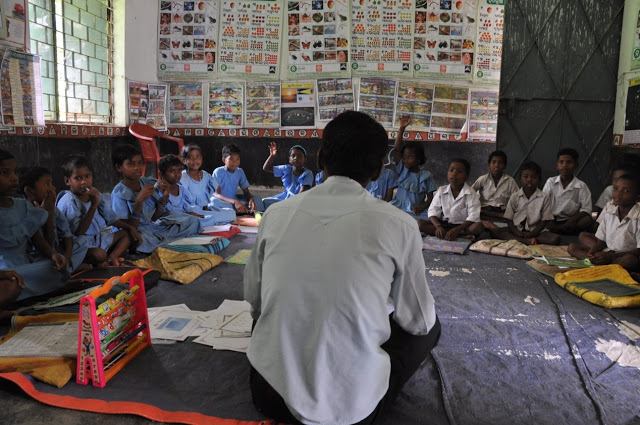NEP, 2020 envisages to modify the existent 10+2 structure in school education to 5+3+3+4 structure, covering the age-group of 3-14 years. It is stated that the current 10+2 structure begins at age 6 – Grade I. The new policy, it is stated, seeks to provide ‘a strong base of Early Childhood Care and Education (ECCE) from age 3, which is aimed at promoting better overall learning, development and well-being.’
It is important to understand here that the Right to Education (RTE) Act, guarantees the provision of compulsory education to all children in the age group of 6-14 years, as a fundamental right. It is the duty of the State to ensure the implementation of this Act and the duty of the Courts to protect this fundamental right and hold the State accountable in case of any breach of this right. The RTE act was enacted following decades of efforts put in by various civil society organizations, members, experts and activists in this field. Yet, when it was finally enacted, it was in a much-diluted form than was desired. Thus, despite best efforts the age group of children for which compulsory education was recognized as a fundamental right was limited to only 6-14 years. The State put forward its oft-cited limitation of lack of sufficient resources as an excuse to exclude both – compulsory education for children below the age of 6 years and above the age of 14 years – as a part of the RTE act. This shirking of responsibility by the State has had a severe and adverse impact on ECCE as well as on the education of children above the age group of 14 years (8th standard).
In the new policy, though it is stated ECCE shall be given its due place, yet there remain a number of unaddressed questions in this regard. First and foremost, if ECCE is being given a formal recognition through this policy, why has no move been made to modify the RTE act and include ECCE as a fundamental right? It has been stated in the policy that sufficient funds will be set-aside for the development of this area, yet there has been made no attempt to make it a justiciable right for citizens, so that they can demand its implementation and hold the State accountable in case of any lapses in implementation. In-fact, the very status of RTE itself is threatened pursuant to this policy as no integration of any kind with the Act has been envisaged and the entire policy mentions RTE only cursorily – in one place.
The second question that needs to be asked here is regarding the manner in which ECCE is envisaged to be implemented. The centralizing tendencies of the policy are again clearly visible here. It has been stated that a ‘National Curricular and Pedagogical Framework for Early Childhood Care and Education (NCPFECCE) for children up to the age of 8 will be developed by NCERT in two parts, namely, a sub-framework for 0-3 years old, and a sub-framework for 3-8 years old, aligned with the above guidelines, the latest research on ECCE, and national and international best practices. In particular, the numerous rich local traditions of India developed over millennia in ECCE involving art, stories, poetry, games, songs and more, will be suitably incorporated. The framework will serve as a guide both for parents and for early childhood care and education institutes.’ Although, overtly, there doesn’t appear to be much that is wrong with providing a National guiding framework, yet it shall all depend on how this intended policy is implemented on the ground. The National framework should not result in the curtailment of autonomy and flexibility at the ground level. A national level curricular and pedagogical framework cannot be uniformly implemented as a ‘one size fits all’ strict framework to be followed, in a country as diverse as India. Local contexts, knowledge and tradition will have to be given enough space and freedom for any kind of meaningful learning and educative process to take place. Further, such a framework should also not encroach upon the pedagogical space available to the teachers and practitioners. Their empowerment cannot result from more controls and stricter boundaries but by allowing them not only greater pedagogical freedom, but also a greater amount of freedom and voice in the area of curriculum design and formation.
Thirdly, there needs to be made a clear distinction between the age groups of 0-3 years and 3-6 years. It should be made amply clear that children in the age group of 0-3 years will not be required/forced to go to any institutional setting under this policy and any kind of guiding framework that is planned for children in this age group shall only be for assistance of parents/care providers at homes/non-institutional settings. The current framing is ambiguous in this regard and leaves a lot of scope for interpretation.
The empowerment of anganwadi workers/teachers, providing them their rightful place in the system and the society is another aspect that needs to be closely looked at, as this a completely neglected area which is in need of much attention and reform. The policy does-not provide a very satisfactory or hopeful roadmap for empowerment of these workers/teachers – various aspects related to their qualifications, training, remuneration etc. – that can enable them to lead a dignified life.
Finally, again, as I insisted in my last article, the only way that the goal of equitable education for all can be achieved, is through the common schooling system. Whereas it is being claimed that ECCE will receive a greater focus after this policy, it is also equally true that the quality of education received by a child will continue to vary greatly based on the socio-economic background of the child. This policy is only a step forward in widening these disparities rather than trying to reduce them in any manner.
The discussion and analysis of NEP, 2020 shall be continued in the next article which shall focus on another area of the policy document.
Nivedita Dwivedi is an Independent Writer. She is working in the field of education and—based in Mumbai.










